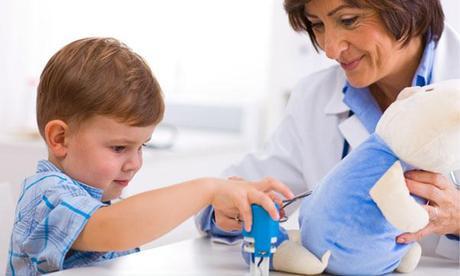
Autism is a developmental disorder that is characterized by impaired development in communication, social interaction, and behavior.
Autism is a brain disorder that often makes it difficult to communicate with and relate to others. With autism, the different areas of the brain fail to work together.
Autism lasts for lifetime. There is no cure, but you will find quite a few treatment options available for autistic children. Treatments include behavior and communication therapies and medicines to manage symptoms. Early treatment can be beneficial to autistic children and enable them to lead a better life.
Most people with autism will invariably have some trouble relating to others. But early diagnosis and treatment have helped increasingly more people who have autism to reach their full potential.
What Causes Autism?
The exact cause of autism is not known, but research has pointed to many possible factors, including genetics (heredity); metabolic or neurological factors, certain types of infections, and problems occurring at birth. Autism is really a physical state, related to abnormal chemistry and biology within the brain. The actual causes of these abnormalities are unknown. There’s a combination of factors, which causes autism. Genetic factors play an important role in autism.
The other causes of Autism are:
- Vaccine sensitivity
- Diet
- Mercury poisoning
- Changes in the digestive tract
- Inability of the body, to consume minerals and vitamins
- Differences in the brain (larger than the normal)
You will find four types of Autism, which comes under the severe criteria:
- Rett Syndrome
- Asperger Syndrome
- Childhood Disintegrative Disorder
- Pervasive Developmental Disorder
What Are the Symptoms of Autism?
Symptoms of autism typically appear before a child is 3 years of age and last throughout life. Children with autism can show a wide range of symptoms, which can vary in severity from mild to disabling. General symptoms which may be present to some degree in a child with autism include:
- Social interaction
- Playing
- Verbal and non verbal communication
- Repeat movements within the body
- Show strange attachments for the objects
- Get over sensitive in sight, touch, listening, taste, or smell (five senses)
- Get distressed, if routines are changed

Autism Disorder Treatment
Treatment
An earlier, intensive, appropriate treatment program will greatly improve the outlook for many young children with autism. Most programs will develop the interests of the child in a highly structured schedule of constructive activities. Powerpoints are often helpful.
- Medications
- Physical therapy
- Applied behavior analysis
- Occupational therapy
- Speech language therapy
- Vision therapy
- Sensory integration
